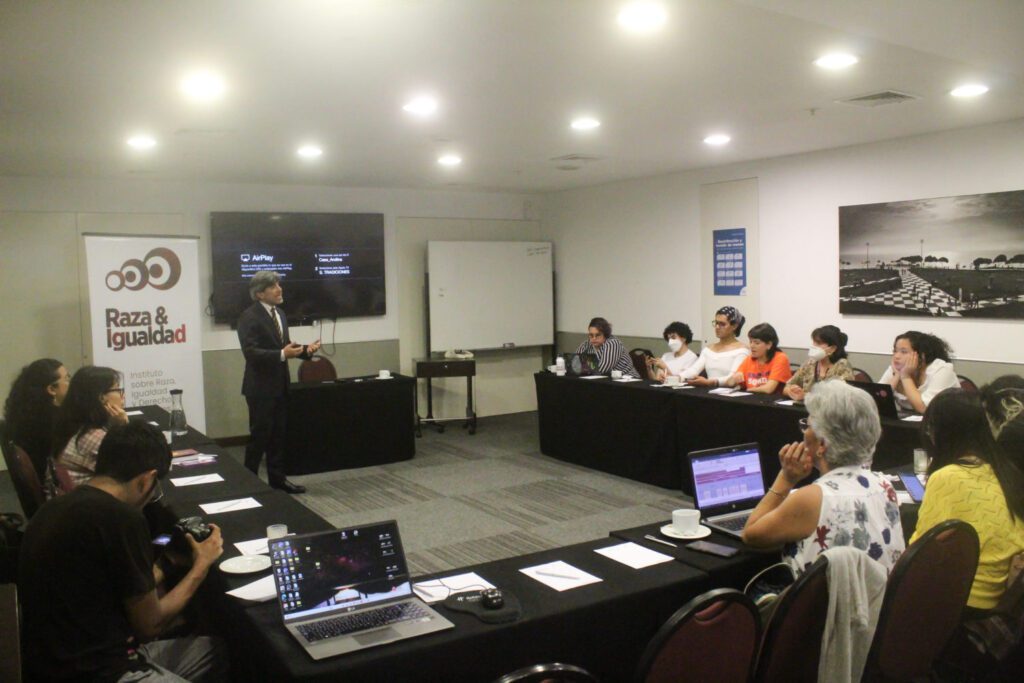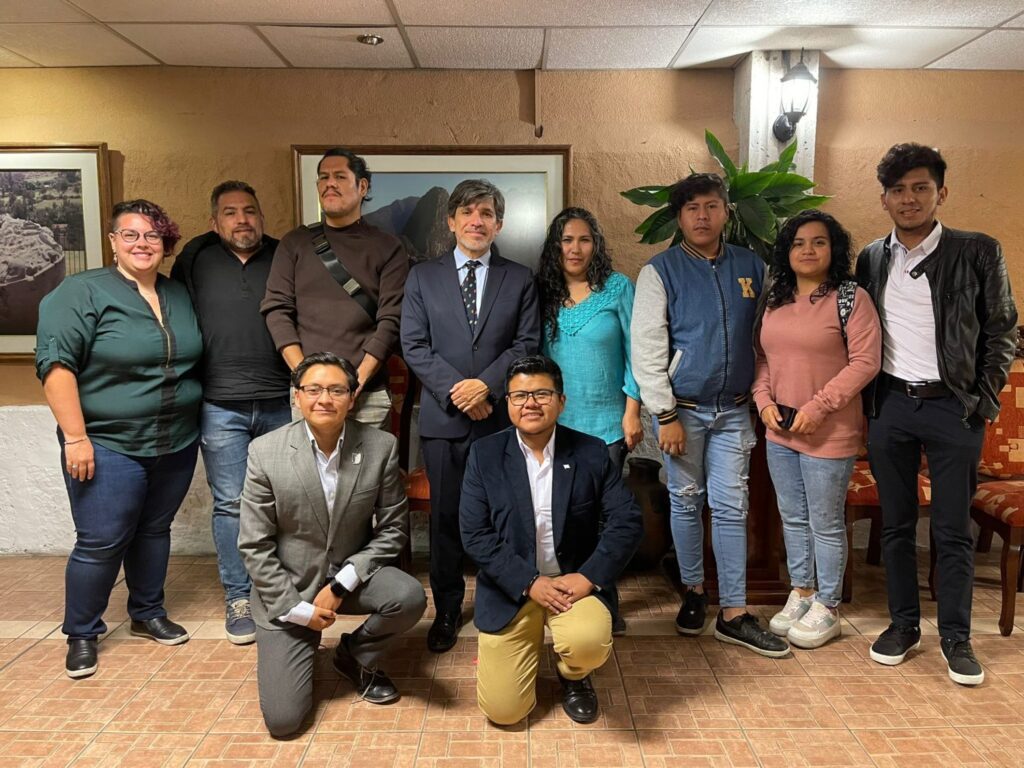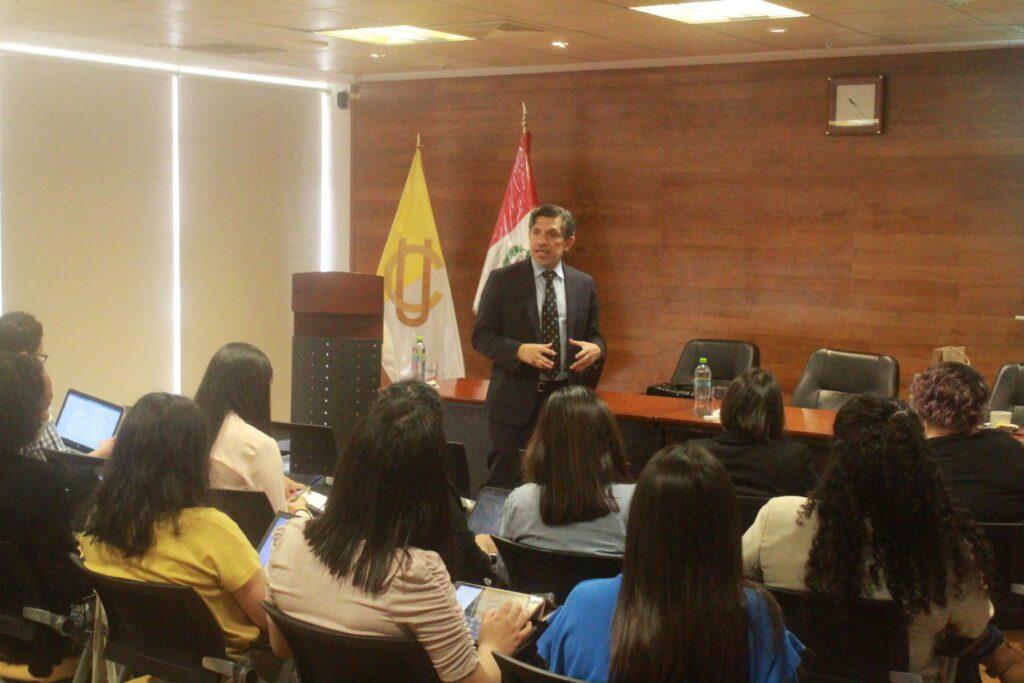Lesbian Rebellions: advances and setbacks in the rights of lesbians
Washington, 13 October 2023.- The Day of Lesbian Feminist Rebellions in Latin America and the Caribbean is not a day created by the United Nations. Born in 2007, following an accord adopted at the 7th Meeting of Lesbian Feminists of Latin America and the Caribbean (ELFLAC), in which around 200 lesbian feminists from across the region participated, delegates chose October 13th to commemorate the first Regional Meeting of Lesbian Feminists of 1987 in Mexico, the first lesbian assembly with a public presence. [1]
Since then, several countries in the region have developed different political and cultural actions promoted by lesbian feminists in favor of visibility and against discrimination. Their advocacy has also brought about legislative and regulatory advances in human rights; however, there has been more progress in some countries than in others.
For example, in Nicaragua there are no laws that protect the LGBTI+ population, much less lesbians specifically. “It is difficult to think of setbacks with respect to lesbian rights in a country where there has almost never been progress,” says Nicaraguan activist Tania Irías, of the Grupo Lésbico Feminista Artemisa, a collective that has been providing spaces for reflection, acceptance, and non-discrimination to young lesbian women in Nicaragua since 2006.
For Irías, the greatest setbacks in the lesbian struggle are linked to the organizational disarticulation caused by “state repression and the establishment of a dictatorship that, as a repressive strategy, has undermined the process of articulation, demand, and visibility of lesbians as political bodies with rights”.
However, in this context of dictatorship, in the “allied” spaces, the struggle for lesbian rights is also usually relegated. “We are not a priority, and we are always being asked to leave the visible struggle to others,” explains Irías, who also assures that as a movement they are clear about the need to continue to occupy their spaces of visibility and to continue joining “with those who join us and making efforts, because it will be difficult for us we don’t,” Irías emphasizes.
In contrast, other countries have made significant progress in the recognition of LGBTI+ rights. In Cuba, for example, with the approval of the Family Code in 2022, several rights that favor lesbian couples were included, such as equal marriage, assisted reproduction, and adoption. On September 28 of this year, Decree 96, an action protocol that prevents and addresses harassment and discrimination for reasons of sexual orientation, gender identity, among others, in the workplace, also came into force. Despite this, in real life the changes are not so evident. “In Cuba, sexist and patriarchal thoughts and attitudes continue to hold sway, which is why lesbian women continue to be victims of hatred and discrimination. We are frowned upon in the street, we are offended and insulted,” says Irina León Valladares, Cuban activist and member of the Latin American Federation of Rural Women (FLAMUR).
In the same vein, Annery Rivera Velasco, independent journalist, and Cuban activist mentioned that “the setbacks –that are more like the normal state of affairs—are social characteristics, as it is part of our sexist and patriarchal society.” Additionally, she said that in Cuba a lesbian movement does not exist due to disarticulation, since Cuban authorities criminalize people who work for the defense of human rights.
Colombia also has broad legal protections for lesbians. Its Constitutional Court has granted transcendental protections, one of them being the historic recognition of LGBTI+ people in the peace process with the Revolutionary Armed Forces of Colombia (FARC). Likewise, the Constitutional Court ruled in 2016 in favor of same-sex marriage.
However, there is still much work to be done so that norms are translated into actions, especially “in relation to reproductive rights, the right to life due to the rise in corrective rape and lesbofeminicide. In addition, discrimination and/or harassment at work due to lesbian sexual orientation,” said Sami Arizabaleta, activist, and director of the Afrodescendent Foundation for Social and Sexual Diversities (Somos Identidad).
“As a lesbian movement we are politically influencing the updating of the LGBTQI policy, with recognition of intersectional lesbian contexts. The strategies are diverse from the regional and social contexts, but in general terms we are advancing in organizational strengthening, political advocacy from the enforceability of rights, denunciations, and dialogue for the adoption of measures,” shares Sami.
In the case of Peru, a country mired in a deep political, social, and institutional crisis, the illegitimacy of the government and the Congress of the Republic prevails. According to the last poll by the Institute of Peruvian Statistics (IEP), around 80% of the population demands the resignation of the president of the Republic, Dina Boluarte, the closure of Congress and new elections.
Both the legislative and executive branches of government have promoted initiatives against the rights of lesbians, LGBTI+ people, women, children, and adolescents. In addition, several congressional members have presented various bills seeking Peru’s withdrawal from the Pact of San José. “The rights of lesbians have been completely ignored by the current government of Dina Boluarte and the Ministry of Women and Vulnerable Populations (MIMP),” says Gabriela Zavaleta, lesbian feminist activist and advocacy coordinator of Más Igualdad.
She also mentions that the Working Group for the Promotion of Lesbian Rights of the MIMP has been deactivated and that for more than 5 years the approval of the investigation on the situation of lesbian rights in Peru has been postponed. “Only civil society organizations are resisting this situation, promoting the national and international articulation of lesbian organizations, carrying out advocacy actions before the CEDAW Committee for a general recommendation on lesbian rights, systematizing the proposals and demands of the organizations, and making efforts to unite lesbian organizations in a regional agenda that serves as a tool for advocacy with the different States and relevant institutions”, she indicates.
In general, various countries in Latin America have achieved significant legislative advances in the recognition of LGBTI+ rights. However, much work remains to guarantee that these rights are fully recognized and respected.
In light of this, Race and Equality highlights some recommendations for States in order to protect the rights of lesbians.
- Guarantee the right to family and civil rights for lesbians through legal recognition of lesbian mothers and diverse families.
- Guarantee access to equal marriage and keep unrestricted respect for rights acquired abroad.
- Develop mechanisms to avoid the criminalization of lesbian mothers in child custody proceedings.
- Strengthen training programs for State officials in order to guarantee the dignified treatment of lesbians in public services.
- Implement Comprehensive Sexual Education policies that guarantee respect for sexual diversity.
- Record, document, and analyze violence against lesbians to formulate policies that respond to their needs.
- Guarantee access to justice andnvestigate and punish discrimination and crimes committed against lesbians.
- Promote the access of lesbians to political spaces and positions of power in order to guarantee the right to political participation without violence and the representation of identities.
- Implement programs of attention and containment for cases of violence due to prejudice inside and outside the home.
[1] Ochy Curiel (2007). Un encuentro trascendente e histórico. Available at: https://rebelion.org/un-encuentro-trascendente-e-historico/





